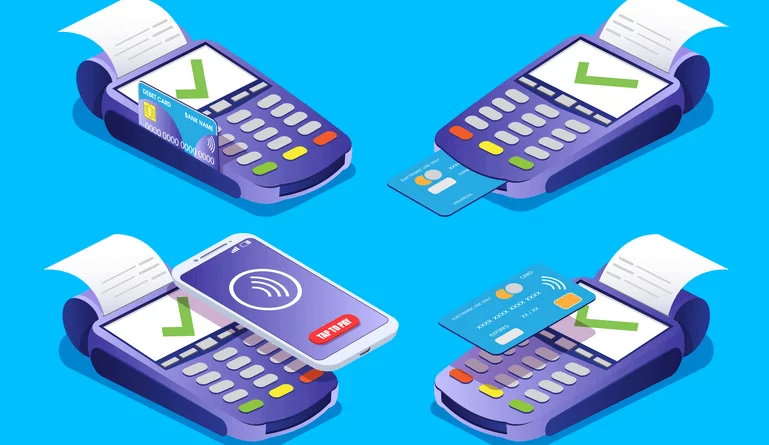Point of Sale (POS) System – Everything You Need to Know
Types of POS systems
1. Desktop POS system
These type of systems run on a computer or laptop, either through an app, a web browser, or a local system. This cash register works like a normal cash register as it has cash drawers, barcode scanners and swipers.
Restaurants, grocery stores, fashion stores, bookstores, salons, and spas are great examples of businesses that will benefit from desktop POS.
2. Mobile POS system
Compared to a desktop POS, a mobile POS is much smaller, but just as useful. It’s primarily a phone app attached to a card reader. Therefore, you can start selling immediately when you turn on the POS software. Barcode scanners and receipt printers are available as optional accessories.
3. Tablet POS systems
The tablet POS is very similar to the mobile POS, both are installed on the devices with optional attachments. Tablets differ from smartphones only in that they are usually larger, so images on their larger screens are displayed with sharper details and more vivid colors.
4. Self-service kiosk point-of-sale systems
Self-service checkout systems enable customers to shop independently without an employee being present. By using this system, companies can increase efficiency and save personnel at the same time.
In a self-service POS setup, transactions are usually one-sided and all risks are eliminated in the process. These POSs are generally similar to desktop POSs, but with additional security features.
5. All-in-one POS systems
To avoid system conflicts, this should be done synchronously to ensure that different parts of the technology are compatible with each other.
With an all-in-one POS system, you get everything you need to run your point of sale from a single source. This saves money, makes business operations easier, and makes customer support much easier in the future.
6. Industry-based types of POS systems
When discussing the types of POS with an industry-based approach, it is often about the different and specific features that organizations need to operate efficiently and effectively.

